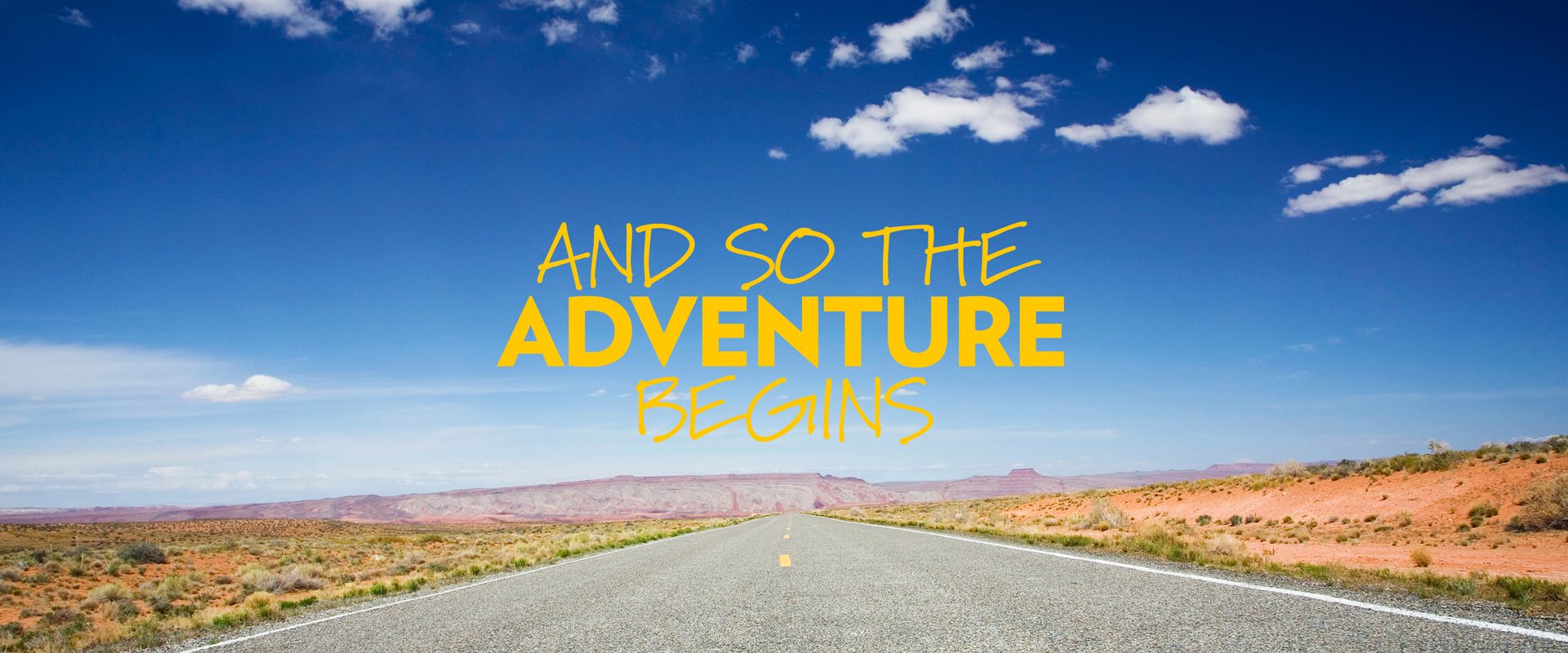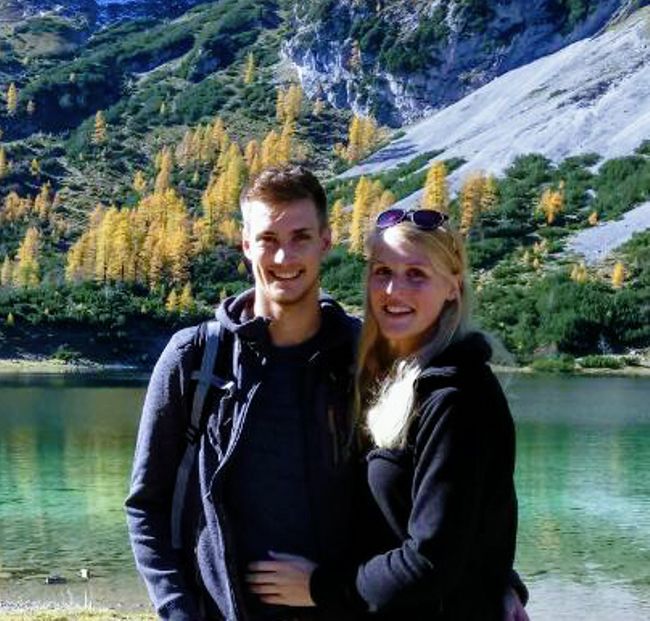Cairns, Great Barrier Reef, Whitsundays and more ...
Argitaratu: 08.06.2018
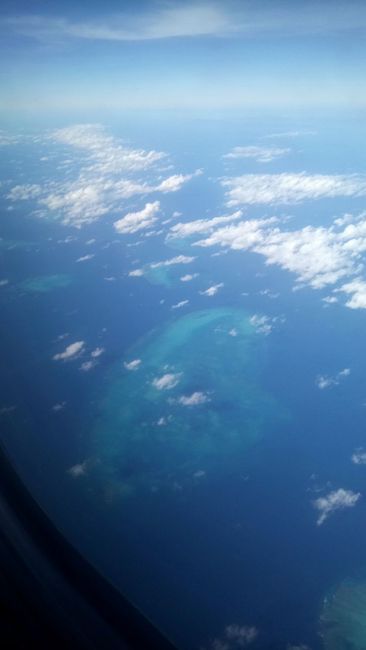
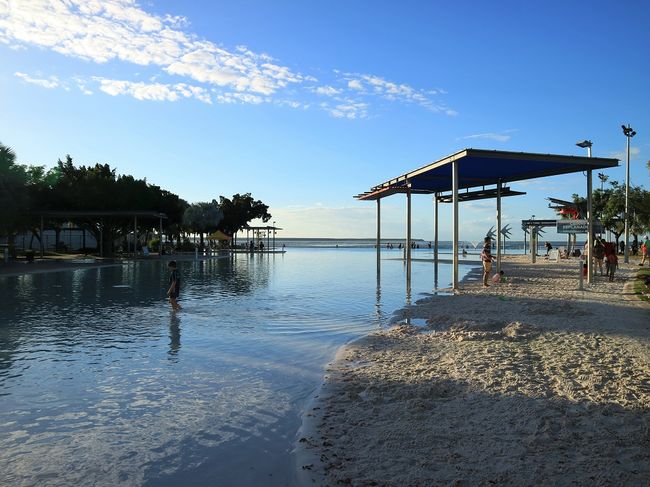
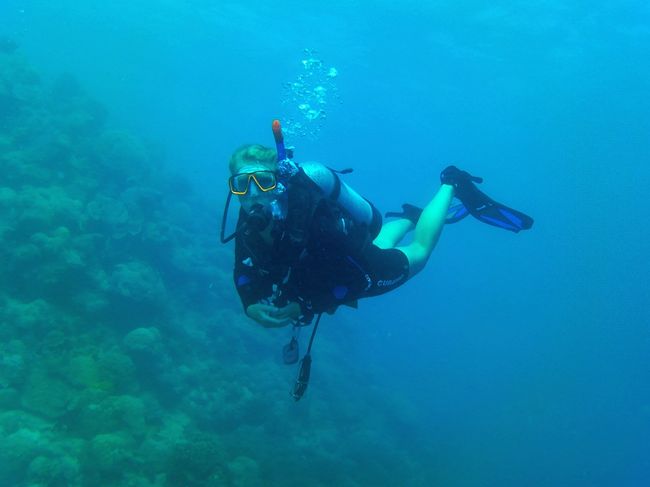
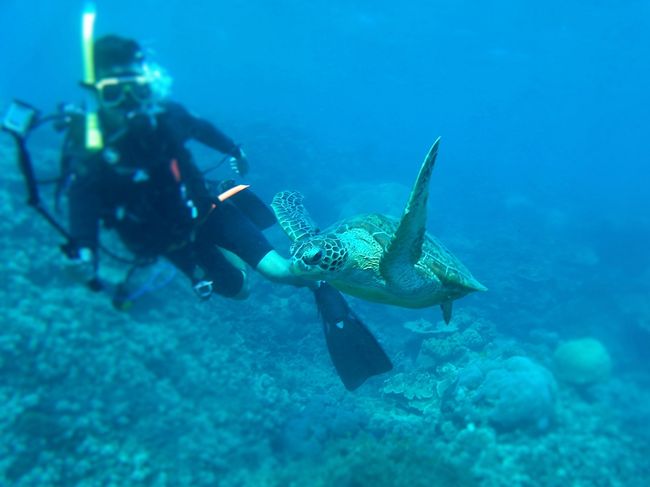
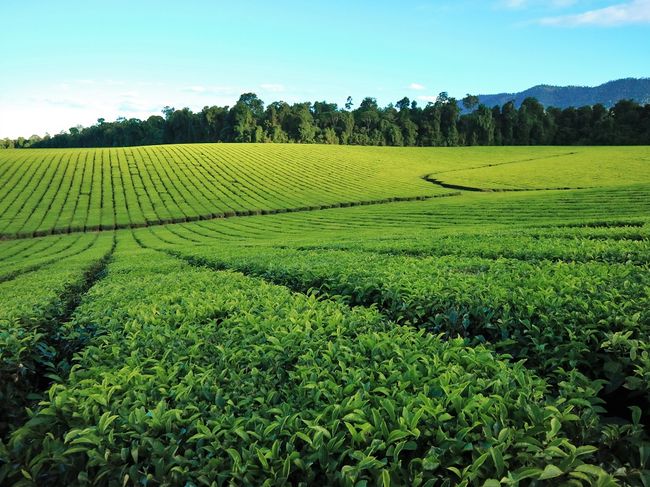
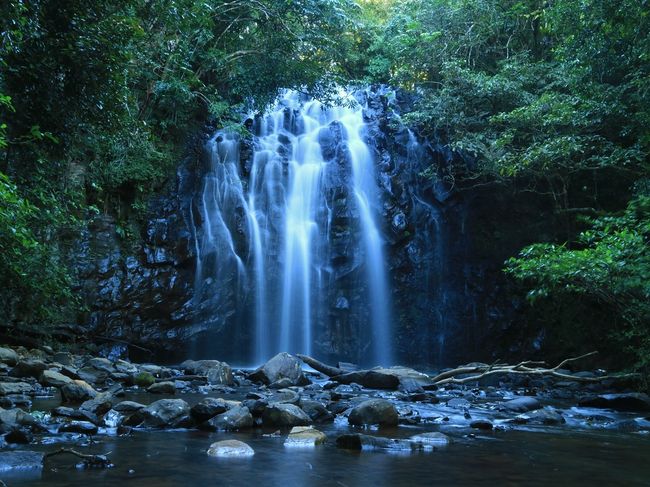
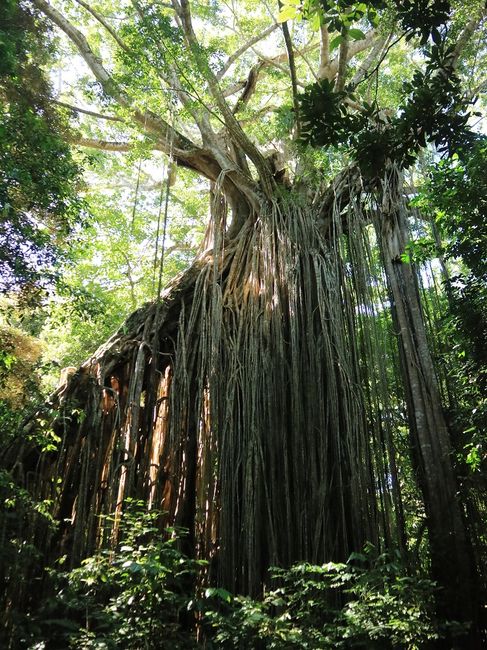
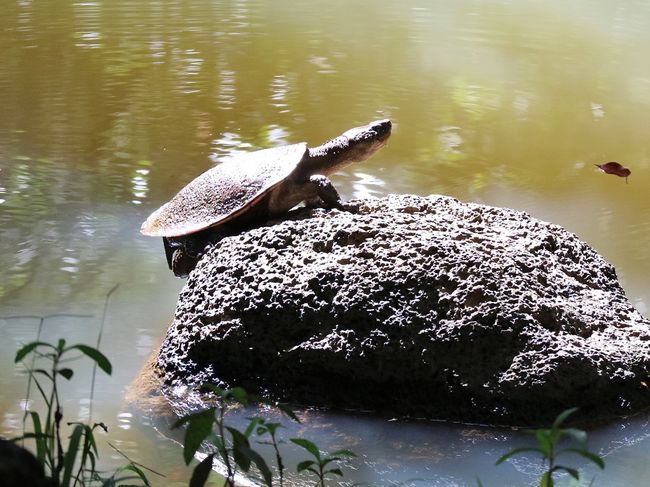
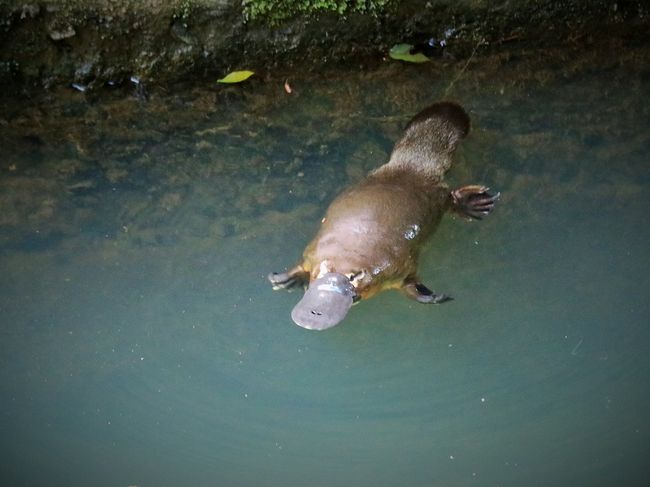
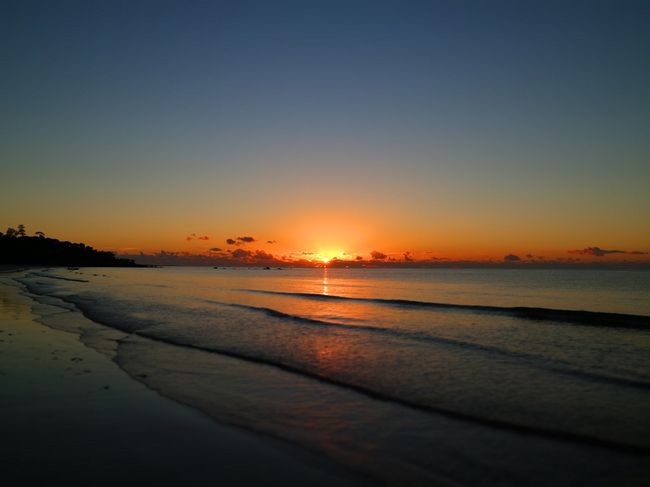
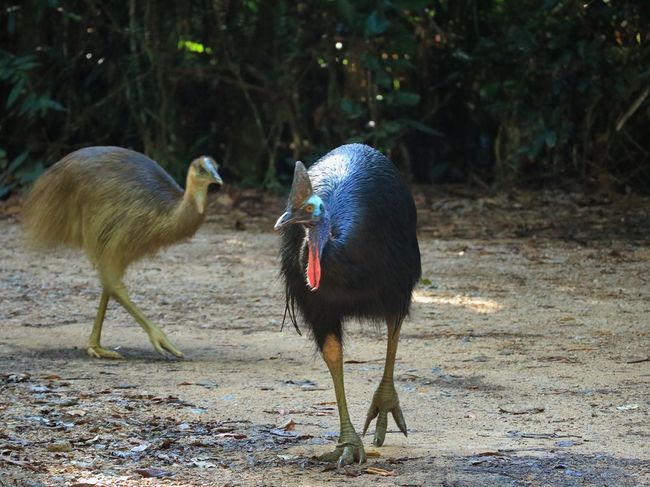
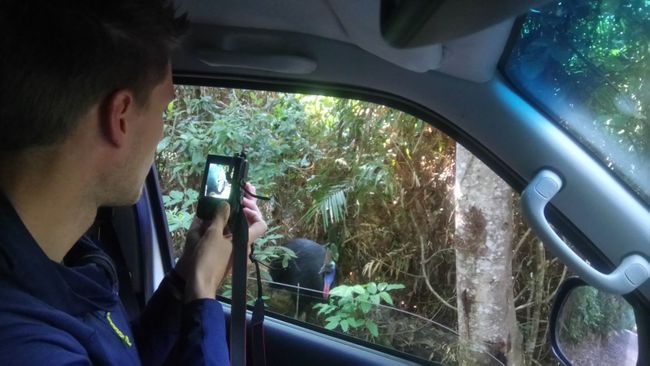
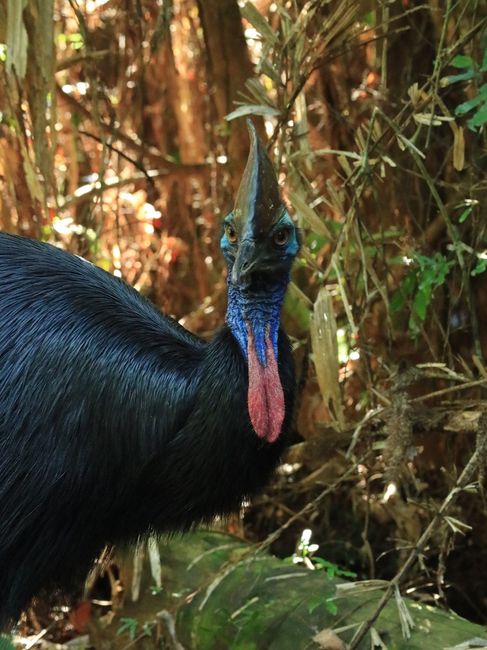
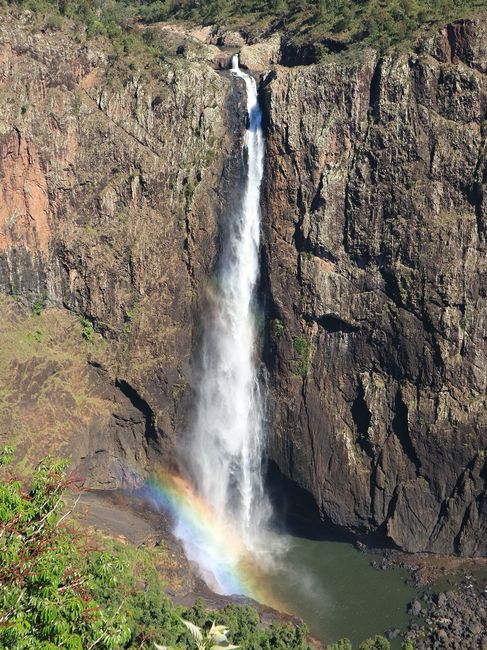
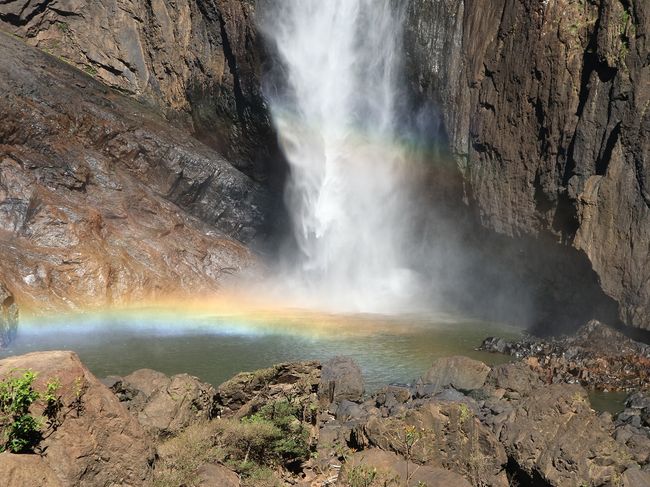
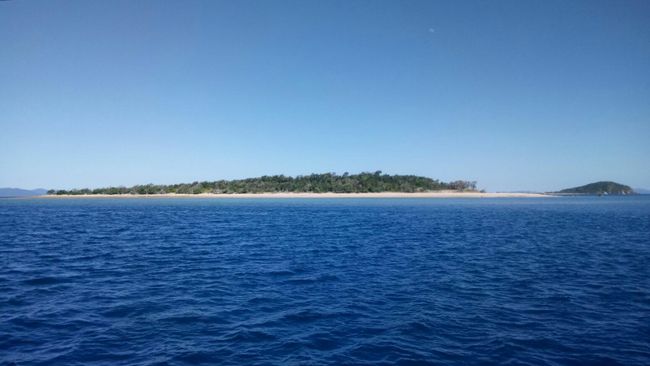
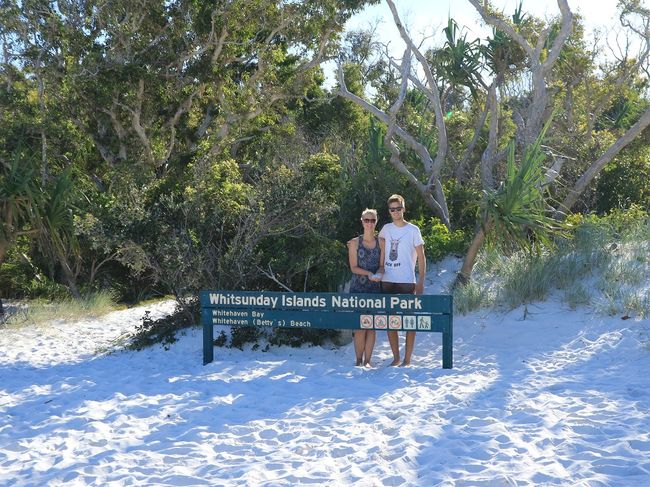
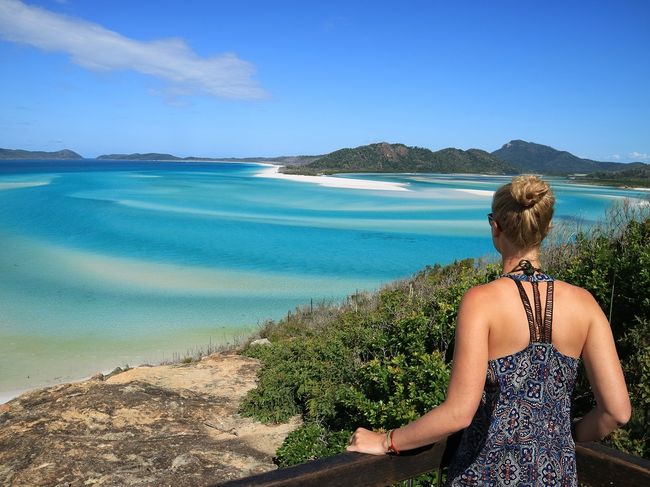
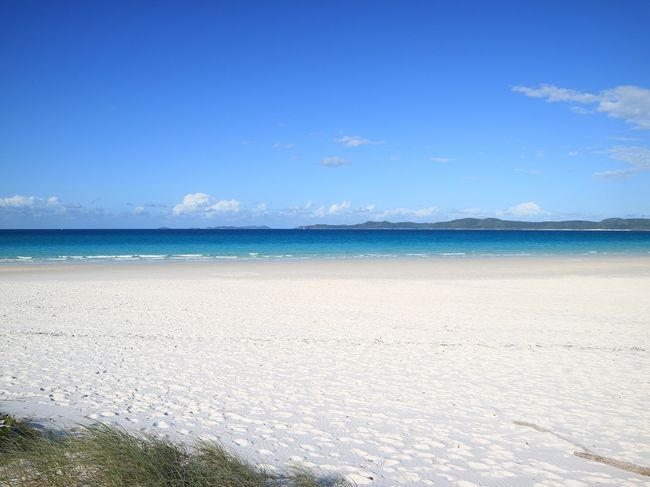
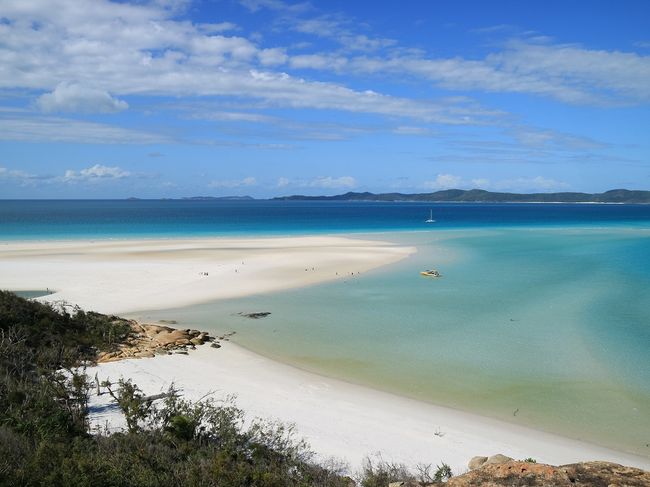
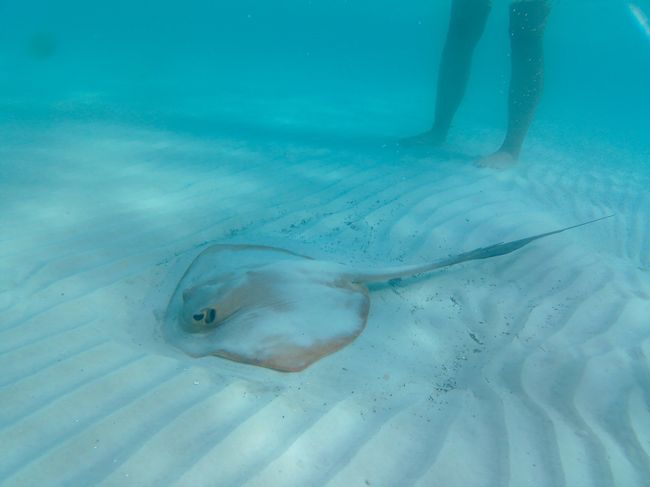
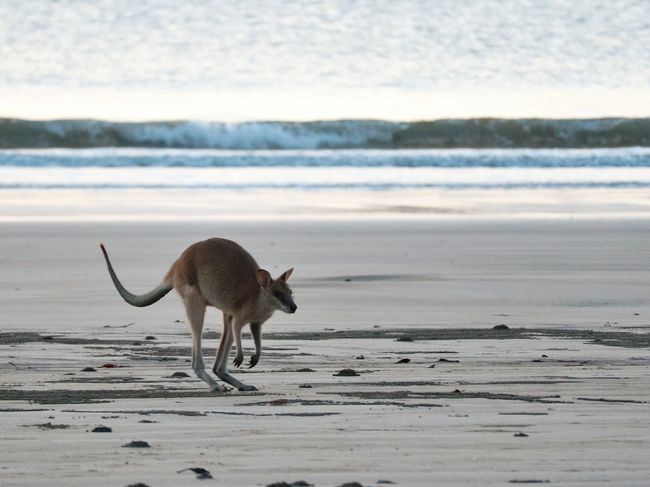
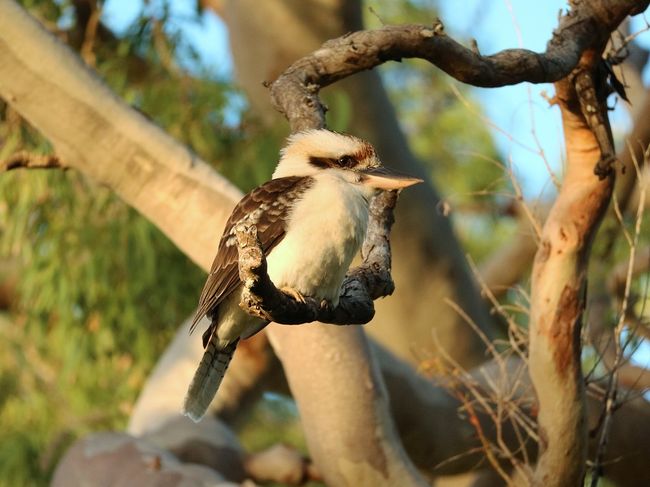
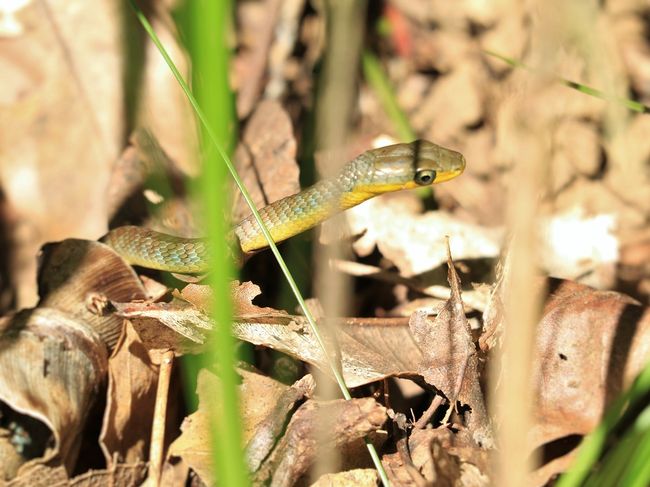
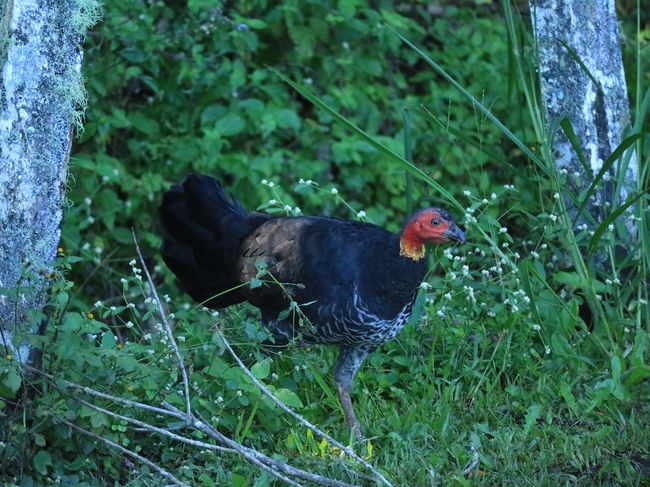
Harpidetu Buletinera
What a flight from Perth to Brisbane to Cairns. We took off on Wednesday at 11pm and landed in Cairns on Thursday morning around 10am. The unexpectedly large aircraft from Quantas really pulled out all the stops for the two short flights. Dinner, breakfast, and an iPad for entertainment for each passenger. We had never seen anything like it. So there were plenty of TV shows, movies, and food to keep us entertained. When we arrived in Cairns, we headed to the hostel, but we were a bit early to check in to our room. So we spent the wait time at a tour desk. Originally, we just wanted to book the excursion to the Great Barrier Reef for the next day. Two hours later, we had also booked the excursion to the Whitsundays, three days on Fraser Island, and a two-day surf course. Now we had booked all the important trips for us and didn't have to worry about anything being fully booked on certain days.
Back at the hostel, we couldn't stay there due to a technical error in the booking system and had to move to another one. Finally checked in and freshened up, we explored Cairns a bit more. The promenade was filled with numerous cafes, restaurants, bars, and a beautiful lagoon for swimming. No one goes in the ocean here due to jellyfish and crocodiles. After a Chinese buffet for dinner, followed by a nightcap, we were finally able to go to bed, exhausted. It had been a while since our last good night's sleep.
Today was the day: diving at the Great Barrier Reef! We were incredibly excited and couldn't wait to jump into the water. On the way to the first dive site, we both had a bit of seasickness. But once we were ready to go, all was forgotten. It had been a while since our last dive, so we decided to go with a guide. We did the next two dives just the two of us. What an underwater world! Countless small and large, colorful fish. We also saw a reef shark and a turtle. Unfortunately, the corals were often colorless and damaged, but that was to be expected. However, there were still colorful corals and anemones with little Nemos. We had an amazing day on board and under the water. The photographer took some nice pictures, but this time they were simply too expensive for us, so we were satisfied with our not-so-good quality pictures. Once back on land, we met up with a friend of Simon's who moved to Cairns six years ago. He gave us some insider tips and showed us his boat where he works as a skipper.
After a delicious breakfast at the hostel, we picked up our camper for the next three weeks. We headed to Kuranda, a village in the middle of the rainforest. We strolled through the Rainforest Market, saw the Barron Waterfall, and walked through the rainforest.
On the way back to the coast to Mission Beach, we drove along a great route with many plantations. Bananas, sugar cane, mangoes, avocados, and tea are grown here. We visited waterfalls, the Twin Kauri Trees, Lake Echam, and a huge fig tree. There was a lot of wildlife at a small lake where we spontaneously stopped. A typical Australian animal lives here, one that we had forgotten about amidst all the kangaroos and koalas. It lives in small streams and lakes. You have to watch the surface of the water closely, as it could surface at any moment where bubbles rise. After some time of searching, we saw a small ...? A platypus! It would pop up briefly every now and then, and we were thrilled to observe it.
In Mission Beach, we relaxed on the beautiful beach, enjoyed the sunrise, and heard about a flightless bird called a cassowary for the first time. Of course, we wanted to see it live. After a short walk through the jungle where the bird is supposed to live, we didn't spot any. So, we impulsively took an inconspicuous path into the dense greenery at the next opportunity. And there they were, two cassowaries! An adult bird with its young. We were a bit amazed by how large the birds are, with their sharp beaks and dangerous claws. We stayed in the car and felt like we were in the middle of Jurassic Park. The two of them curiously walked around our camper, and we had plenty of time to observe them.
Still filled with joy, we went to the Wallaman Falls, the highest single-drop waterfall in Australia at 278 meters. The view from the platform was already breathtaking. The water sprays into fine mist on its way down, creating a rainbow in the sunlight. Of course, we absolutely wanted to go down there, so we took on the challenging walk. From down here, everything looked even more beautiful. Every step was worth it.
The next morning, we headed to the Whitsundays for a trip. We went to two different snorkeling spots on a speedboat and saw the most beautiful corals so far, surrounded by numerous fish. For example, there was a Napoleon fish named Georg that had gotten used to humans and swam very close to them. Then we went to the highlight of the tour, Whitehaven Beach. The unbelievably white sand here is even considered the whitest sand in the world. This is due to its high quartz content of up to 99 percent. Combined with the azure blue water, it not only looks impressive, but it also has some interesting "features". The sand doesn't heat up even in high temperatures, and you can enjoy the pleasant squeaking sound under your feet. You can even polish gold jewelry with the sand. It is strictly forbidden to take sand from Whitehaven Beach as a souvenir! An exception was made only for NASA. They were allowed to use the sand for polishing their telescope lenses due to its purity. Johnny Depp has also been here, filming the fourth installment of the "Pirates of the Caribbean" series. From the Hill Inlet Lookout, you have a truly breathtaking view, but there was also something to discover on the beach itself. In the shallow water, we saw some stingrays. There are also supposed to be sand sharks, but we only caught a glimpse of them from the lookout. The excursion came to an end, and we docked again in Airlie Beach. Here, too, there is a large swimming pool on the promenade, as swimming in the ocean is not possible.
Up early, today we went to Cape Hillsborough for the sunrise. There are always kangaroos and wallabies to be seen on the beach in the morning here. Unfortunately, we overslept a bit and apparently arrived too late. Luckily, a little wallaby was still sitting on the beach when the others had already left. We took some time to explore the area and discovered a kookaburra bird. The most famous bird in Australia is known in Germany as the laughing kookaburra and belongs to the kingfishers. Then we went to Eungella National Park. A short walk to a lookout point over the valley became, at least for me, the scare of the day. A narrow dirt path led through the rainforest, with me in the lead and Simon behind me. Suddenly, Simon said, "Ohhh, a snake!" I froze in place, with goosebumps all over, oh my goodness! Very slowly, I turned around, expecting the worst. But I quickly sighed with relief. The small snake was about 30 cm long and hardly thicker than a small finger. We watched it fascinated for a while. If it were up to Simon, we could have seen an even bigger snake. But I had had enough for now and was just glad that for the rest of the day, we only saw a few more platypuses, turtles, and a water snake from afar.
On the last day of the week, we had a long distance to drive to reach Agnes Water and 1770. This small town is the only one in Australia with a number as its name. James Cook landed here in 1770 with his crew, hence the name "Seventeen Seventy". We sunbathed on the beach, watched surfers riding the waves, and looked forward to the coming week.
Harpidetu Buletinera
Erantzun
